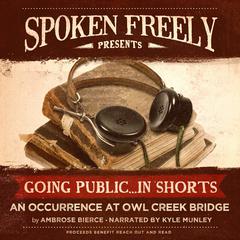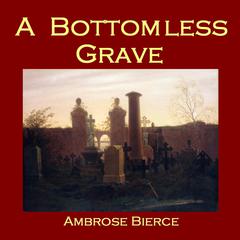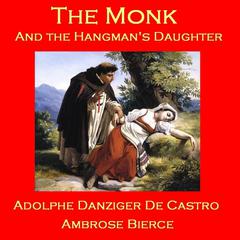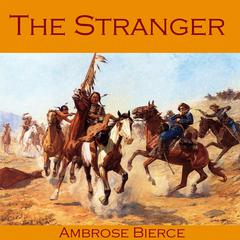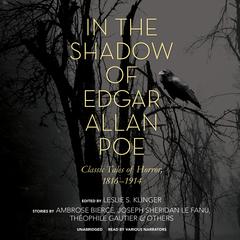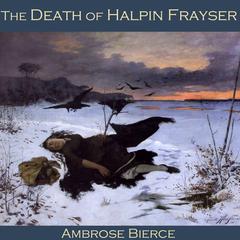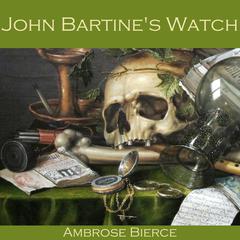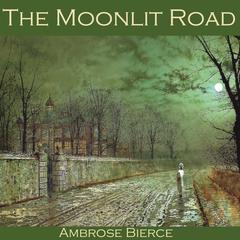 Play Audiobook Sample
Play Audiobook Sample
The Cultured Bumpkin Presents: Great American Short Stories Audiobook
 Play Audiobook Sample
Play Audiobook Sample
Quick Stats About this Audiobook
Total Audiobook Chapters:
Longest Chapter Length:
Shortest Chapter Length:
Average Chapter Length:
Audiobooks by this Author:
Publisher Description
A compilation of popular short stories from American literature narrated by professional voice actor Jake Phillips.
Download and start listening now!
The Cultured Bumpkin Presents: Great American Short Stories Listener Reviews
Be the first to write a review about this audiobook!
About the Authors
Ambrose Bierce (1842–ca. 1914) was an American journalist, short-story writer, and poet. Born in Ohio, he served in the Civil War and then settled in San Francisco. He wrote for Hearst’s Examiner, his wit and satire making him the literary dictator of the Pacific coast and strongly influencing many writers. He disappeared into war-torn Mexico in 1913.
O. Henry (1862–1910), born William Sydney Porter in Greensboro, North Carolina, was a short-story writer whose tales romanticized the commonplace, in particular, the lives of ordinary people in New York City. His stories often had surprise endings, a device that became identified with his name. He began writing sketches around 1887, and his stories of adventure in the Southwest United States and in Central America were immediately popular with magazine readers.
Stephen Crane (1871–1900) was an American novelist, poet, and journalist. He worked as a reporter of slum life in New York and a highly paid war correspondent for newspaper tycoons William Randolph Hearst and Joseph Pulitzer. He wrote many works of fiction, poems, and accounts of war, all well received but none as acclaimed as his 1895 Civil War novel, The Red Badge of Courage. Today he is considered one of the most innovative American writers of the 1890s and one of the founders of literary realism.
Mark Twain, pseudonym of Samuel L. Clemens (1835–1910), was born in Florida, Missouri, and grew up in Hannibal on the west bank of the Mississippi River. He attended school briefly and then at age thirteen became a full-time apprentice to a local printer. When his older brother Orion established the Hannibal Journal, Samuel became a compositor for that paper and then, for a time, an itinerant printer. With a commission to write comic travel letters, he traveled down the Mississippi. Smitten with the riverboat life, he signed on as an apprentice to a steamboat pilot. After 1859, he became a licensed pilot, but two years later the Civil War put an end to the steam-boat traffic.
In 1861, he and his brother traveled to the Nevada Territory where Samuel became a writer for the Virginia City Territorial Enterprise, and there, on February 3, 1863, he signed a humorous account with the pseudonym Mark Twain. The name was a river man’s term for water “two fathoms deep” and thus just barely safe for navigation.
In 1870 Twain married and moved with his wife to Hartford, Connecticut. He became a highly successful lecturer in the United States and England, and he continued to write.
Susan Glaspell (1876–1948) was a Pulitzer Prize–winning playwright, novelist, biographer, poet, actress, and director. Her works include Trifles, A Jury of Her Peers, and Fidelity. Her work was strongly influenced by a murder trial Glaspell covered for a newspaper, in which a woman was convicted of murdering her husband.
Washinton Irving (1783–1859), American essayist, novelist, and historian, was born in New York to a wealthy merchant. He studied law, but because of his delicate health, his family sent him on a tour of Europe, where he collected material later used in his stories and essays. The first American author to achieve international fame, his literary career served in many ways to consolidate the cultures of the United States and Europe.
Edgar Allan Poe (1809–1848) transformed the American literary landscape with his innovations in the short story genre and his haunting lyrical poetry, and he is credited with inventing American gothic horror and detective fiction. He was first published in 1827 and then began a career as a magazine writer and editor and a sharp literary critic. In 1845 the publication of his most famous poem, “The Raven,” brought him national fame.









